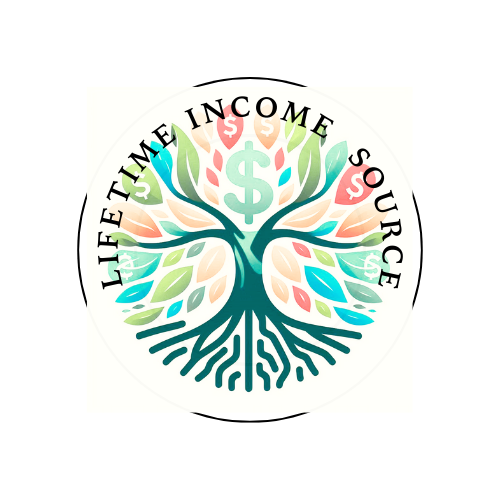
You’re looking into the golden years of retirement, a time that’s supposed to be rich with relaxation and freedom. Yet, this tricky little thing called finances doesn’t take a break, even when you do. Retirement can stretch your budget in ways you didn’t anticipate, and the fixed income from pensions or savings may not always cover all the bases. So, what to do?
I’m here to help you understand the financial landscape that many retirees face. It’s not just about meeting your daily needs but also about retaining the lifestyle you’ve enjoyed or pursuing desires like travel and hobbies.
The key is to find where your experience and skills intersect with opportunities for earning extra money. This isn’t just about supplementing your income; it’s also about staying active and engaged in a community that benefits your health and well-being. The critical point is to assess your unique attributes—your experience, knowledge, and possibly untapped talents.
Bringing in additional cash during retirement has a heap of perks. Beyond the obvious financial relief, it keeps your mind sharp, helps you maintain a social network, and offers a sense of purpose. These aren’t trifling extras but fundamental components of a satisfying retirement life.
So, what are some of these methods? In the next section, I will walk you through how you can transform years of accumulated expertise into lucrative consulting gigs or freelancing opportunities. We’ll explore how you can share the wealth of your knowledge with those who are eager to learn and benefit from your experience.
Leverage Your Expertise: Consulting and Freelancing Opportunities

You’re sitting on a goldmine of experience. Think about the years you’ve spent in the workforce, the tasks you’ve mastered, the wisdom you’ve acquired, and the challenges you’ve overcome. Now that you’re retired, you can transform this treasure trove of knowledge into a profitable consulting or freelancing business. This is not just a way to earn extra income but a powerful demonstration of your continued value and relevance in the professional world. I’m here to show you how.
The first step is making the mental shift from full-time employee to independent consultant. Consider the specific expertise and unique skills that make you valuable. It could be your understanding of an industry, your ability to manage projects, or your knack for solving complex problems. Businesses, especially startups, often need these traits and are willing to pay for them on a project basis.
With today’s technology, you can connect with these opportunities no matter where you are. Online platforms such as Upwork and Freelancer are excellent places to start. They’re basically matchmakers for businesses and skilled professionals. Creating a profile that highlights your experience is crucial here.
But how do you stand out in a sea of eager contenders? Create value propositions specifically tailored for a younger demographic or emerging businesses. Emphasize your experience but also showcase your ability to adapt and your eagerness to collaborate within new industry paradigms.
You won’t just have to take my word for it. I’ll share stories of retirees like Martin, a retired marketing director who now consults for tech startups, or Linda, a former HR manager who freelances as a corporate recruiter. Their journeys from retirement to re-engagement in the workforce offer practical insights, genuine encouragement, and proof that age is just a number when it comes to professional acumen.
Turning Hobbies into Income: Creative and Enjoyable Ventures
Have you ever thought your pastime could pad your wallet? Well, it can. Crafting, painting, gardening, woodworking, or even writing are hobbies that bring joy and can also bring in some cash. Now, I’m here to help you with how to do just that.
Choosing which hobby to monetize takes some introspection. Lean towards something that sparks joy and has a market demand. If you’re an avid knitter, handcrafted scarves might be a hit. Are you a photography enthusiast? Sell your prints or offer portrait services.
The digital age has made reaching potential customers more straightforward than anyone could have imagined. Platforms like Etsy, eBay, and Shopify can become your online storefront. At the same time, local craft fairs and farmers markets provide an in-person selling experience.
But this isn’t just about selling; it’s also about sharing your expertise. Hosting workshops or creating online courses lets you pass on your knowledge and make money simultaneously.
Of course, it’s not just about making quick money – your time is valuable, too. Turn your craft into a lucrative endeavor by setting sensible price points. And don’t worry too much about scaling at the start; you can always adjust your approach down the road.
I’ve encountered countless stories of retirees finding fulfillment and financial gain by turning their hobbies into businesses. A painter now exhibits in local galleries, and a retired teacher authoring children’s books. The possibilities are boundless.
Now, let’s transition to our next section – investing shouldn’t be overlooked. Smart financial moves can supplement your creative income, providing a safety net and even more freedom in retirement.
Investing with Wisdom: Safe & Strategic Financial Moves

You’ll discover that investing isn’t just for Wall Street gurus; retirees can participate, too. I’m here to help you understand how. Your first step? Assess your risk tolerance. The goal is to make safe, strategic moves that protect your nest egg while earning a little extra. However, it’s important to note that all investments carry some level of risk, and it’s crucial to understand these risks before making any investment decisions.
Low-risk investments are the sweet spot for retirees. Think bonds, dividend-paying stocks, and some mutual funds. Diversification, which is the practice of spreading your investments among different asset classes and types of investments to reduce risk, is your best friend for mitigating risks without compromising potential gains.
Peer-to-peer lending is another avenue that’s garnered a lot of popularity. It allows you to lend money directly to individuals or small businesses online. The returns can be tempting, but you’ll have to balance them against the possibility of borrower default.
Now, does balancing risk and potential returns sound daunting? It doesn’t have to be. This is where financial advisors come into play. They can provide invaluable guidance, helping you make informed decisions that align with your financial goals and needs.
Don’t worry too much about the complexities of investing. You can always adjust your approach down the road. Choose something that resonates with you and fits your financial landscape. And always, always remember: your first attempt doesn’t need to be your last. There’s plenty of room for learning and adaptation, giving you the control and security you need in your retirement years.
I hope you’ve found both inspiration and practical advice in this exploration of earning extra money in retirement. Don’t let the end of a traditional career mark the end of your financial growth. There’s a lot of opportunity in safe and strategic investing for retirees. So go for it—make those smart moves and see your retirement not just as a time to relax but also as a time full of potential. I’m rooting for you, and I’d love to hear how you’re making it happen. Share your journey, the ups and downs, and the victories, big or small. Thanks for reading, and may your retirement be as financially rewarding as it is personally fulfilling.
Here’s a little transparency: Our website contains affiliate links. This means if you click and make a purchase, we may receive a small commission. Don’t worry, there’s no extra cost to you. It’s a simple way you can support our mission to bring you quality content.





